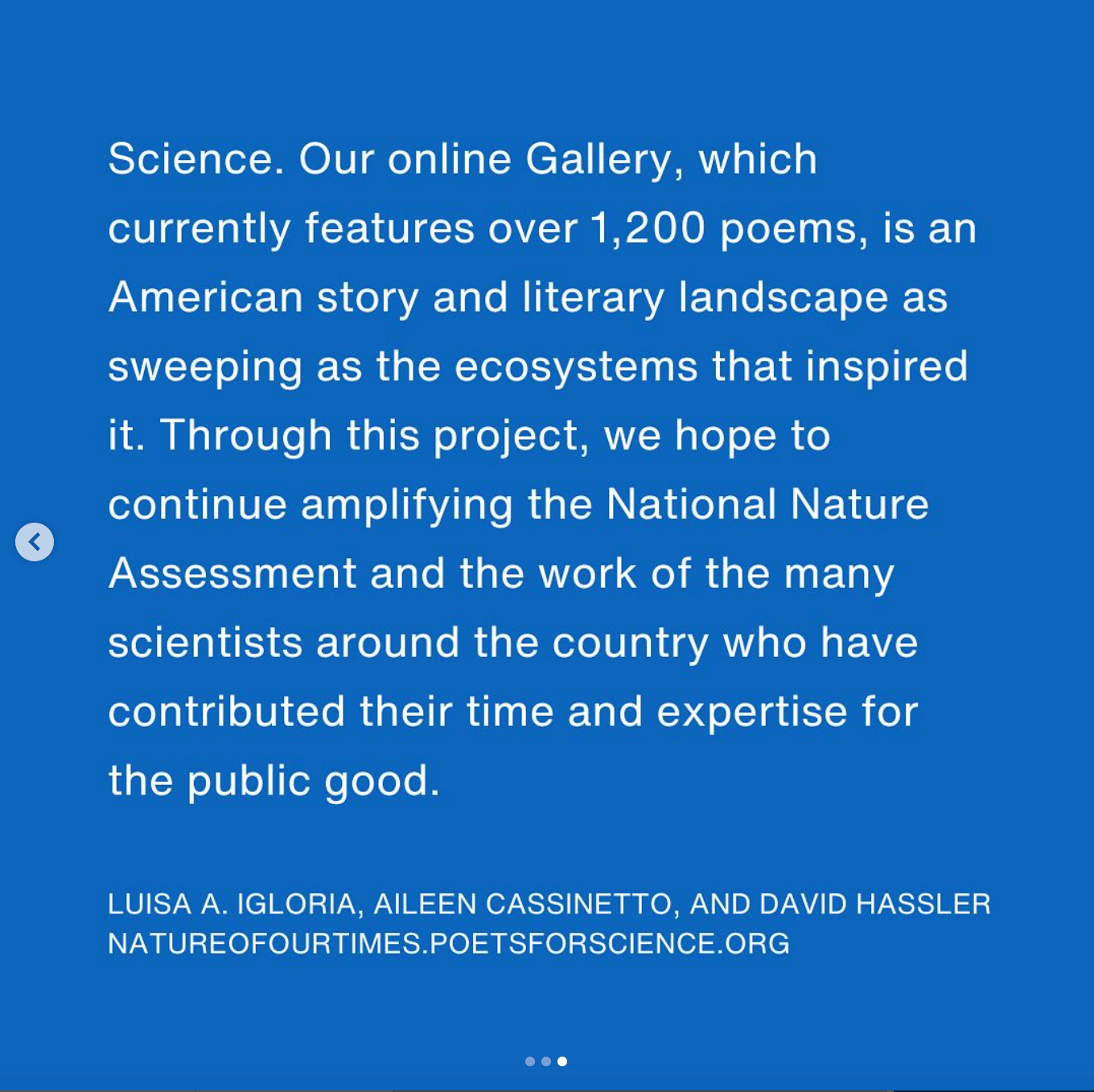This week, I saw a surprising item on a friend’s social media feed. The item was about the abrupt cancellation of a project at the US Global Change Research Program.
The USGCRP manages collaboration between 15 federal agencies to advance a whole-of-government response to global environmental change. I had a chance to work with the USGCRP on the Fifth National Climate Assessment. It was a professional highlight and huge honor to work alongside and at the feet of many of our country’s top scientists and climate policy thinkers.
The cancelled project is the planned First National Nature Assessment. According to the US Geological Survey, one of the federal agencies participating in the USGCRP, “The Nation’s natural ecosystems are increasingly threatened by climate change and other disturbances. To better understand the impact of these disturbances, the U.S. Global Change Research Program is working to produce the first-ever National Nature Assessment (NNA1), which will complement the National Climate Assessment.” You can read a lot more about what was planned for the NNA1 here.
Except now the Assessment has been canceled. Since the news broke about the cancellation, there has been outcry from the scientific community, and authors of the assessment report say they are going to try to publish it anyway.
But my friend, David Hassler, is not a scientist. He’s a poet. He directs the Wick Poetry Center at Kent State University. We grew up together at Kent State, where both of our dads were on the faculty. David has guided the Wick Center as it’s matured into a nationally recognized leader in advancing poetry. I’m not the biggest poetry aficionado—my love language is an executive summary with three bullet points—but I’ve come around in recent years, and the Wick Center’s homepage resonates: “In these times—far from ordinary—poetry has been a guide, a way to hold and make sense of our complex emotions: our grief, our joys, and everything in between. Poetry gives us the language to bring the world together, especially when words alone feel like they fall short.
I was surprised to see news about the USGCRP on David’s social media, but it turns out he is co-editing a poetry anthology called The Nature of Our Times: Poems on America’s Lands, Waters, Wildlife, and Other Natural Wonders, that has been intended as a companion to the Nature Assessment. His post assures us that the poetry anthology will still be published—and what’s more, you can read the more than 1,200 poems in the Nature of Our Times gallery right now.
I was especially delighted to find a poem on the gallery by Texas poet Naomi Shahib Nye connecting nature and immigration policy. It begins, “Big Bend has been here, been here. Shouldn’t it have a say?”
Public policy often depends on reports like the National Nature Assessment. The information that starts as dense analysis ends up as laws and rules that help people—and the rest of the creation—to flourish. But in a time when we seem to be struggling with the usual ways of writing policy, poetry might turn out to be the language we need.






